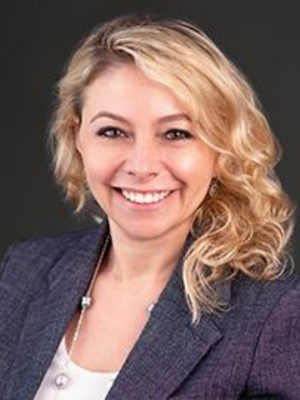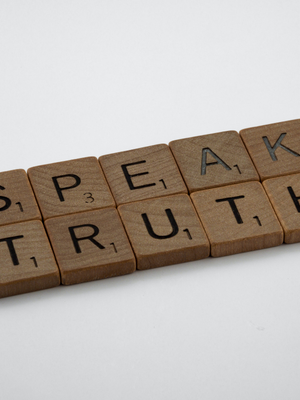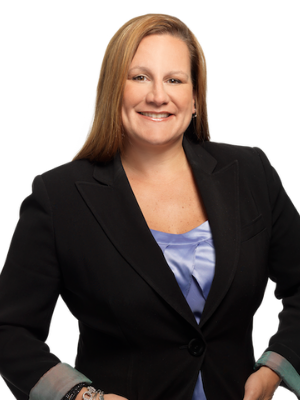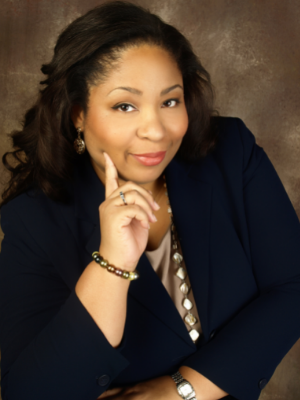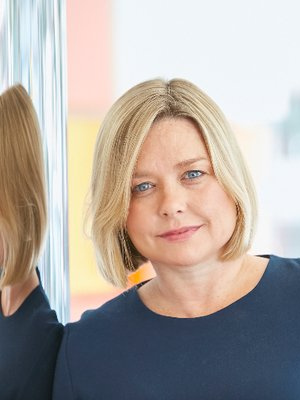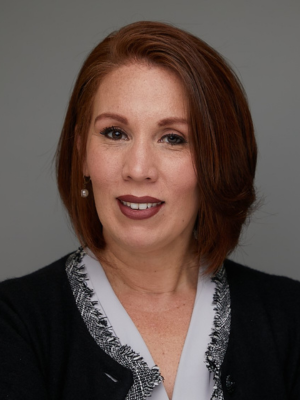 “I’m a firm believer in the power of personal brand. When you see a particular logo – like Apple, Starbucks or Nike – you immediately have feelings associated with that entity,” says Melinda Cora. “When someone sees my name appear on their phone or in an email, my desire has always been that the brand I’ve developed makes them want to answer my call or read my message and engage with me. My hope is that they have positive feelings and thoughts, based on my work and experiences with them.”
“I’m a firm believer in the power of personal brand. When you see a particular logo – like Apple, Starbucks or Nike – you immediately have feelings associated with that entity,” says Melinda Cora. “When someone sees my name appear on their phone or in an email, my desire has always been that the brand I’ve developed makes them want to answer my call or read my message and engage with me. My hope is that they have positive feelings and thoughts, based on my work and experiences with them.”
Carving Her Own Trajectory
Growing up in Bushwick, Brooklyn, a low-income and predominantly Hispanic and Black community, Melinda recognized the lack of resources around her (vacations often meant opening a fire hydrant on hot summer days) and how it contrasted with the untapped wealth of talent. She was motivated to carve a different trajectory for herself and recounts that one of her earliest supporters in this regard was her fifth-grade teacher, Mrs. Aievoli, who noticed Melinda’s potential and giftedness and inspired her to grow.
“She invested her time in preparing me to test for a specialized middle school. My acceptance into the school put me on a path to graduate high school at the top of my class at 16 years old,” Melinda recalls.
With hard-working Puerto Rican parents who hadn’t had the opportunity to pursue higher education, school guidance counselors who lacked the frame to point her towards scholarships, and a family mentality of avoiding debt and needing to make ends meet, she attained her associates degree in just 1.5 years before taking on a full-time role as a legal secretary at 18 years old in the M&A department of Shearman & Sterling LLC. It was in that role that Melinda began the practice of learning through observing and quickly became an asset to her team.
“I knew there was something wrong with the equation, and I wanted to be a part of making it right. We had pounds of hard labor workers in my community but a lack of role models who could demonstrate that it was possible to enter a variety of industries, and that lit a fire in me,” says Melinda. “I wanted to be able to go back years later and say, ‘I’ve had a successful career. I’ve been able to break out of this mold. And guess what? You can, too.’”
She was soon promoted to a marketing coordinator role at Shearman, before one of the lawyers she’d worked with called on her for an opportunity at Equavant. When that same lawyer again moved to Lehman Brothers, she called on Melinda again. After seven years at Lehman, where she was an operations analyst and later, a member of an alternative investment management team, Melinda was sponsored by another former colleague for a project management role at PGIM Quantitative Solutions (then known as QMA), a leading quantitative investment manager owned by PGIM, the investment management business of Prudential Financial, Inc.
“Multiple times in my career, former managers and colleagues picked up the phone and offered me some type of pivotal change,” says Melinda. “They believed in me and recognized my drive and many strengths. With each opportunity, I assessed whether it was the right, progressive next step in my career, and once I gave my ‘yes,’ I also gave those roles my all.”
Melinda knew she’d acquired the experience and network, but recognized that if it weren’t for sponsors, her lack of a bachelor’s degree may have filtered her resume out of the interviewing process: “I realized that I needed to go back to school, even though I was in my 30s,” reflects Melinda. “So, I became a full-time working wife and mother of three children—who was also earning her bachelor’s degree. I graduated Summa Cum Laude and have also taken several MBA courses to date.”
Striving For Excellence
“I appreciate that perfection is a myth. However, striving for excellence has been a driving factor for me. If it has my name attached to it, I want to do it with excellence,” says Melinda, speaking to honing her personal brand.
Nearly 15 years ago, Melinda joined QMA as a junior-level project manager and is now head of product implementation and project management at PGIM Quantitative Solutions: “It’s a dynamic role managing my team and a testament to the evolution of the body of work we coordinate within PGIM Quant,” says Melinda. “I have the privilege of working with some of the brightest individuals and leaders in our industry who I get to learn from and partner with daily. No two days are the same, and each new opportunity allows my team and me to be a part of developing new solutions.”
Melinda also serves as a role model and mentor. It’s her passion to build the power of dreaming big among youth and young adults. With HISPA (Hispanics Inspiring Students to Perform and Achieve), she speaks to middle school students in predominantly Hispanic New Jersey communities, inspiring them to believe there is space for them in the asset management industry.
Melinda is a co-founder of PGIM Quant’s Hispanic and Latino business resource group (BRG), Unidos, and a leading member of the Inclusion Council, which oversees each of PGIM Quant’s BRGs to drive meaningful results through a culture of diversity, equity and inclusion. She serves on the Latinx executive leadership team for PGIM overall. Melinda also volunteers through Junior Achievement of New Jersey, through her local church’s Girls Ministry program, and leads a young adults life group out of her home.
The Courage To Speak
Latinos are underrepresented across the finance industry at less than 10%, though they account for approximately 18% of the US population. That percentage drops significantly when accounting for senior-level Latinos in this space. Despite her Latino colleagues coming from different countries, the messages from their families and peers are often similar—like be grateful to have a job, keep your head down, and do not make big waves. Melinda says, at times, Latinos are often not outspoken enough in the workplace as a result of this common conditioning.
“I’ve often struggled with that internal tension. My perspectives and ideas are unique and valuable within the work environment, but everything in my culture tells me I shouldn’t speak up,” she reflects. “So, I’ve had the interesting dynamic of saying I am going to speak up and it’s going to be hard.”
To do this, Melinda calls on her own touchstone of living from courage: “Courage is sometimes ill-defined as ‘not being afraid’ or ‘the absence of fear.’ That’s not what it is. Courage is moving forward or speaking up, even if you are afraid,” she says. “I had to develop the courage to say I do have an idea and it is worth sharing.”
Valuing Diversity of Thought
Melinda, at times, struggles with the notion of imposter syndrome, but quickly reminds herself that her lack of privilege growing up does not equate to a voice that counts less. She recognizes the importance of embracing the background that shaped her and the need to value every upbringing – even the upbringings of those who grew up in privilege.
“It’s rethinking and relearning certain things as an adult to continuously challenge yourself. We’re all learning from each other. No one has arrived at any sort of final destination and we should regularly seek opportunities to further develop,” Melinda notes.
Her early experiences shaped the way that she cultivates different perspectives as an adult: “As a child, I felt like people often didn’t care about what students in my schools thought. It was a ‘what the teacher says goes’ mentality. Even then I knew, if we’re not allowing opportunities to challenge each other, then we’re doing ourselves a disservice and missing out on diversity of thought.”
Get Comfortable Being Uncomfortable
As a tip, Melinda discourages people pleasing: “What’s more important is developing into a trustworthy and sought-after business partner. Whether raising a difficult issue with her children’s schools or inside the four walls of PGIM, Melinda has learned that uncomfortable conversations must be braved.
“I’ve had many experiences where I felt uncomfortable raising a topic but I did it anyway, because there was merit in it,” she says. “If we’re going to have diversity of thought, then as leaders and as professionals, we have to evaluate the things that make us uncomfortable and really decipher, what is this individual trying to say? What is the goal here? Because if you believe intentions are good, you might want to tune your ear and try to better understand what is being said, versus dismissing or disqualifying it.”
Cultivating a Growth Mindset and Culture
As she’s become more senior, new challenges and greater stakes can heighten the fear of making mistakes: “I often say each product effort or project is like its own recipe,” she says. “You may have a group of people with different work styles or a different timeline. You may have different factors that lead to initiatives being diverse even when they’re similar on paper.”
Melinda embraces the idea of being a continuous learner: “We’re not going to get it right 100% of the time. So, two main factors drive my thought process. When I get something right, I celebrate the opportunity to teach. What went right? How did I get there? What was new? What defined the win?” She continues, “And then when I get something wrong, I celebrate the opportunity to learn. What didn’t go right? What can I learn from this? How can I get better? It’s important to look at mistakes as something that will help me grow and, in turn, others as well.”
Melinda looks for opportunities to convey that growth approach and reinforce it with her team members, too. She focuses on caring about people as individuals first and then supporting their career growth with the learning and opportunities to get where they want to go, in their own way and style.
“Whatever number of years and whatever season we spend together, my goal is to be that servant leader to individuals on my team,” she says. One way Melinda empowers her team, especially in the hybrid environment, is to let them decide on her attendance in meetings. This instills confidence in their abilities, while she remains available to provide guidance and be there if and when needed.
Melinda says she has gained the most from organic mentor relationships – precisely, from exposure. As a self-motivated learner, it’s not conversations, but truly watching people in action that inspires her.
“From the start of my career, the way I’ve learned from leaders is by sitting at a table with them, listening to how they interact with others, seeing how they get decisions made, and watching how they influence business,” she says. “How I learn best is by observing. What drives me is looking around the office and asking who do I want to be more like to continue growing as a professional and progressing in my career?”
From Childhood to Today
Mrs. Aievoli still figures prominently in her life and has proven to be Melinda’s lifelong mentor.
“To this day, she keeps me pushing myself. She always says, ‘okay Melinda, and what’s next?’ She keeps me focused on that idea of growth and development,” says Melinda, who still shares her milestone accomplishments with her. “She’s been invested in me from childhood and that’s resonated with me for years.”
Melinda is most proud that her three children – now 20- and 16-year-old daughters, Jayden and Madison, and 13-year-old son, Zachary – can see in her an example of the role model she wished for as a child.
“I had a non-traditional career and educational path, and while it hasn’t been easy, I never settled or gave up, and that’s something I hope encourages them throughout their lives,” she says. “I want them to believe in their own aspirations and carve their own paths so that they, too, can be role models to future generations.”
By Aimee Hansen


